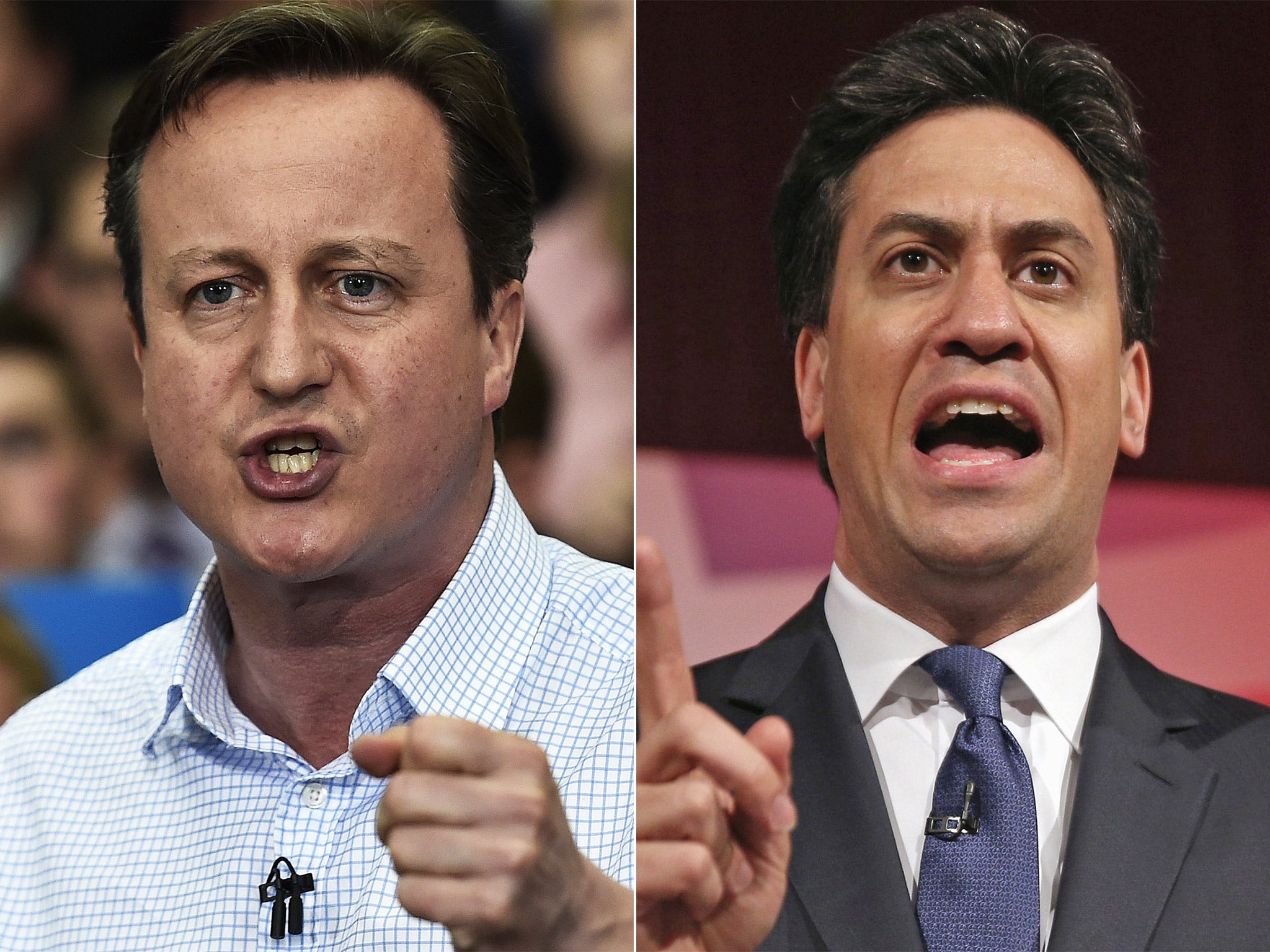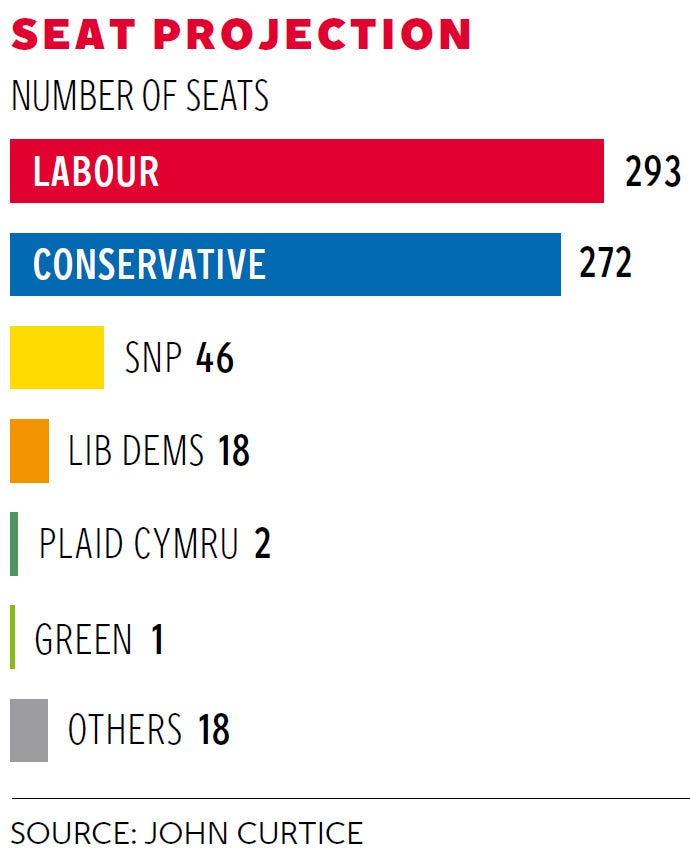General Election 2015: Final poll shows Labour and Tories deadlocked
David Cameron is ready to brand a Labour government 'illegitimate' if Ed Miliband needs Scottish National Party MPs to secure a Commons majority

Your support helps us to tell the story
From reproductive rights to climate change to Big Tech, The Independent is on the ground when the story is developing. Whether it's investigating the financials of Elon Musk's pro-Trump PAC or producing our latest documentary, 'The A Word', which shines a light on the American women fighting for reproductive rights, we know how important it is to parse out the facts from the messaging.
At such a critical moment in US history, we need reporters on the ground. Your donation allows us to keep sending journalists to speak to both sides of the story.
The Independent is trusted by Americans across the entire political spectrum. And unlike many other quality news outlets, we choose not to lock Americans out of our reporting and analysis with paywalls. We believe quality journalism should be available to everyone, paid for by those who can afford it.
Your support makes all the difference.The Conservatives and Labour are gearing up for a bitter constitutional row on the morning after the election, as The Independent’s final “poll of polls” shows the two main parties deadlocked.
David Cameron is ready to brand a Labour government “illegitimate” if Ed Miliband needs Scottish National Party MPs to secure a Commons majority. But Labour will accuse Mr Cameron of “squatting” in Downing Street and claim he should resign immediately if he cannot guarantee a Commons majority for the Queen’s Speech to be presented on May 27.
The “poll of polls”, based on surveys carried between 2 May and 6 May, shows the Tories and Labour tied on 33 per cent. Last week, the Tories were one point ahead on 34 per cent but Labour has now drawn level. Ukip is on 13 per cent, the Liberal Democrats 9 per cent and the Greens 5 per cent.
According to John Curtice, Professor of Politics at Strathclyde University, such a result would give Labour 293 seats, the Tories 272, the SNP 46, the Liberal Democrats 18, Plaid Cymru 2, the Greens 1 and Ukip none.
With neither Labour or the Tories likely to win an overall majority, there are fears that the Queen could be dragged into party politics – even though senior civil servants will make every effort to keep her above the fray.

Lord (Gus) O’Donnell, who was Cabinet Secretary when the Coalition was formed in 2010, said that Mr Cameron could hang on and put his Queen’s Speech to the Commons even if he was “well short on [the] numbers” needed for majority support. Whether it would be “reasonable” for Mr Cameron to act in this way would be a political judgement, he said. “If it goes to the Commons and he is defeated by a large margin, there will be questions about why do that,” he added.
Senior Labour figures believe Mr Cameron would quit if he stood no chance of winning the Commons vote. But Tory insiders suggest he would hang on in the hope that the public would see the Tories as the winner if they had won the most seats. Although Labour and the SNP might together have more seats than the Tories, Cameron allies hope that voters would regard that an “illegitimate” government because Labour had come second. The Tories would brand it a “coalition of the losers.”
Tories hope that some Labour figures would not risk a public backlash and would reject a voting alliance with the SNP. But that was dismissed by Labour sources, who said: “The rules say that what matters is the numbers in the Commons. We will let the numbers do the talking.” They believe Labour MPs would not reject the opportunity of ousting the Tories.
Lord O’Donnell predicted the results would spark a debate about the first-past-the-post system."There will be questions about is it legitimate, fair that Ukip and Greens got lots and lots of votes and very few seats,” he said.
A survey for the Electoral Reform Society by BMG Research found that 54 per cent of people want parties to work together and share power in a hung parliament, while 33 per cent would prefer a second election before Christmas.
Darren Hughes, the society’s deputy general secretary, said: “The two main parties have pursued the fantasy of a majority, instead of dealing with the reality that they should work with other parties – as happens in countless nations around the world.”
Join our commenting forum
Join thought-provoking conversations, follow other Independent readers and see their replies
Comments